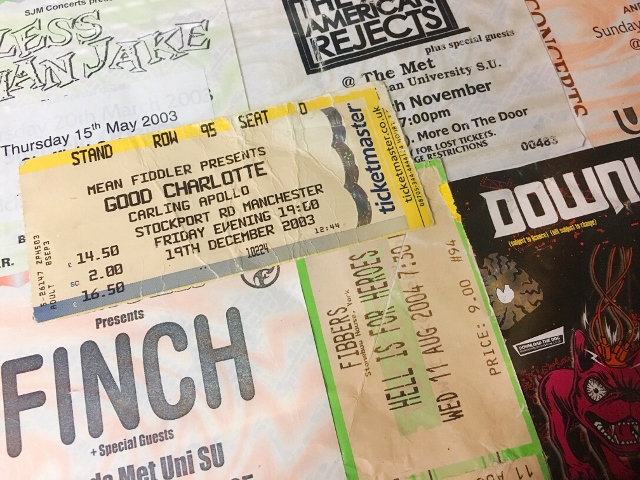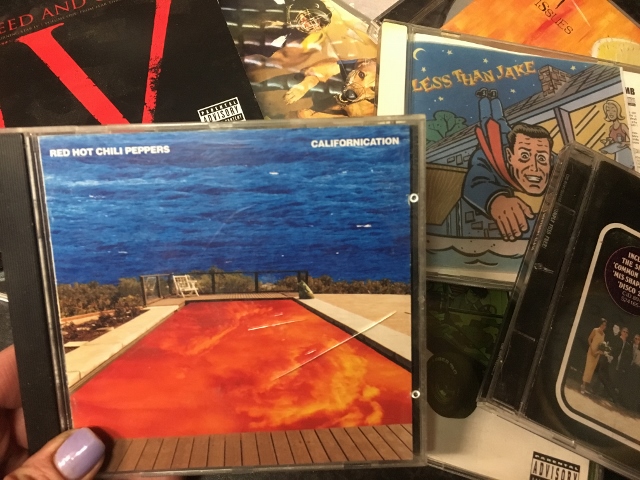Our telly boxes are filled with Christmas adverts, the supermarkets are blasting Christmas songs and the streets are illuminated by Christmas lights. Whether you adore thinking about Christmas in November or your believe festivities should be kept to December, there's no escaping the fact that Christmas is just 6 Fridays away.
A typical budget-obsessed penny-pincher would have planned their Christmas budget months ago but me,... well, I'm more like the rest of us who only begin to think about presents when the media tells us to. Although I preach that I'm not susceptible to consumerism, I have to admit that having Christmas thrown in my face whichever way I turn, it's hard to ignore.
My close family and friends all value Christmas as a time for celebrating love and food rather than an opportunity to cash in on luxury commodities. We just buy for our immediate family and very close friends and the wider family follow the same practice. It's always been like this but I can imagine it would be awkward for those who have a tradition for buying something for everyone to change their priorities.
Because we aren't so big on indulging in gifts, we don't tend to plan very much in advance as you now know from this very post. My sister is proactive and buys gifts throughout the year as she discovers them then hides them until it's time to hand them to the recipient. It's a good method for reducing the stress, spreading the cost and preventing the panic-buying of crap presents. It's not often that I venture into towns or cities to shop so opportunities don't often arise for me to make purchase so far in advance of Christmas.
The first step I take when working out the Christmas budget is create a spreadsheet on Google Docs, listing all the people we need to buy for. It doesn't really change much from year to year so I reuse the same doc time and again. As a couple, Dave and I work out how much we will spend on gifts. Like I mentioned earlier in the post, we don't have a an indulgent culture so we typically allocate £20-£30 per person however, if a gift comes in cheaper for one person it means we have more money to spend on someone else if we need to. Each time a gift is purchased, we update the sheet with what the gift is and how much it cost. We both then know exactly how much money is left to spend and who we need to buy for.
Google Doc budget sheet
The beauty of using Google Docs is that the spread sheet document can be shared with others. Because Dave and I purchase gifts as a couple, I share the document to with him so he can add things and edit it himself. It also means we both have complete viability of who we are buying for, how much we are spending and what have bought. This avoids any arguments over money or accidentally forgetting someone on the list.
This year is very different for me because I'm not working full time. I was made redundant little over a month ago and have set up my own social media consulting business. It means I'm not bringing in much money at the moment, and even though Dave is being amazing at supporting me, I'm very conscious of spending any of our money. Following our proven method means I don't have to feel awkward or worry about spending money as it's already allocated.
Shopping online
I love internet shopping because I can avoid the stress of the big city, the queues and the temptation to buy things I hadn't budgeted for. I'm one of few girls I know who doesn't enjoy shopping and traipsing around the city. Sitting by the fire on an evening browsing shops on the internet is more my style. As well as avoiding costs associated with visiting the city such as travel, drinks and snacks and parking, online shopping is easy to manage how much I am spending. Arithmetic is my weak point so the number of confusing offers such as 10% off the sale price which is 20% off all items in one part of the shop and buy one get one free on selected items and so on, means I quickly lose track of the price of the items in my shopping basket. The virtual basket on online stores does that all for me.
Buying for my partner, Dave, is harder. Is it just me or is buying for men soooo much harder than women? Not only do I have to budget for him separately and worry he will spend more on me than I do on him, he's also very hard to buy for. He's not interested in commodities and doesn't get very excited about clothes. But clothes is what I normally end up getting him because he doesn't buy many clothes for himself and I enjoy dressing him in things I have chosen. I normally get inspiration from browsing men's accessories in online shops. The other advantage of buying online is the ease of returning items. Dave is a slim guy and often jumpers that fit his arms are far too long on his torso, giving him the look of a school boy wearing a new jumper at the start of term which he can 'grow into'. I keep feeding Dave but he isn't growing in the outwards direction. Being able to drop unwanted items off at the post office for return means I don't have to worry as I can just send the items back.
Wrapping presents
The other way I save money is using old newspapers to wrap up presents. Wrapping paper sure looks lovely under the tree but tearing it off and disposing of it put a little downer on Christmas for me. But newspaper can look lovely too. Last year I decorated wrapped presents with pine cones I collected from our wood and attached them to lengths of used ribbon from my sewing box. It took some time but I enjoyed the decorating process and they looked beautiful under the tree. Adding a personal, hand crafted touch is apprenticed by friends and family too.
I know my method isn't original and it's by no means groundbreaking, but I find it helpful hearing how other people really do things rather than read a blog post with a list of bullet pointed instructions that have no sentiment from the writer. So I've rambled on about how I actually do things in hope that it will help someone else or at least reassure them they aren't the only ones who haven developed a military-style gift budgeting action plan and buying expedition.
Do you plan a Christmas budget independently or with a partner? I'd love to hear how others really manage theirs.
























































































































































